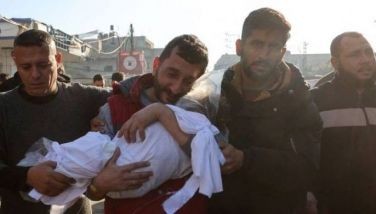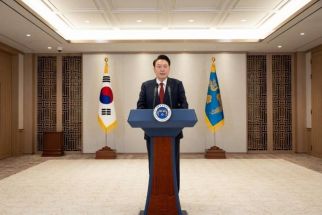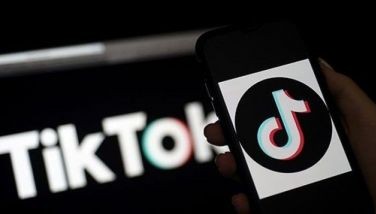Lawsuit accuses Indian PM of role in 2002 violence
NEW YORK — A federal court in New York has summoned India's prime minister to respond to a lawsuit accusing him of human rights abuses, casting a shadow over the Indian leader's first trip to the U.S. on Friday as head of government.
The lawsuit against Narendra Modi stems from long-standing allegations that he didn't do enough to stop devastating religious riots in his home state of Gujarat in 2002, when he served as chief minister there. The human rights group American Justice Center filed the suit Thursday in Manhattan federal court on behalf of two unnamed survivors of the violence.
The plaintiffs are seeking monetary and punitive damages and a judgment that Modi's conduct amounted to genocide when he was chief minister of Gujarat.
The legal case will be an annoyance to Modi but is unlikely to have a significant impact on his visit.
Milan Vaishnav, an associate on South Asia at the Carnegie Endowment for International Peace, said from his understanding it's a "pro forma" summons, and there's no judge's ruling of prima facie evidence on complicity in the Gujarat violence.
He said U.S. courts also issued summons against previous Prime Minister Manmohan Singh and former ruling party leader Sonya Gandhi when they visited the U.S. — in response to cases filed by another U.S.-based rights group that have not gotten anywhere.
"There's no question it's precisely the wrong foot on which to begin Modi's visit to the United States," Vaishnav said, but predicted it would just get a brief flurry of attention. " I don't expect it in any material way to affect any of his engagements in the United States, either with private citizens or private industry in New York or in Washington with the U.S. administration."
Modi was elected prime minister in May. He was scheduled to arrive in New York on Friday with a welcome normally reserved for rock stars — a sold-out appearance at Madison Square Garden on Sunday.
Modi's five-day trip is tightly packed: He will be meeting President Barack Obama and a slew of top American officials, addressing the U.N. General Assembly and interacting with the heads of major U.S. companies and influential Indian-Americans. He is also scheduled to meet privately with Mayor Bill de Blasio later Friday.
Modi has denied any role in the violence, and India's Supreme Court said there was no case to bring against him. But suspicions were enough for the United States to refuse him a visa in 2005. As it became clear that Modi would become prime minister, however, the U.S. made it clear that there would be no issue with travel to the United States.
Bizay Sonkar Shastri, a spokesman for Modi's Bharatiya Janata Party, criticized the lawsuit, saying Modi has been cleared of suspicion in India.
"Our court and our public have given clean chit to (Modi) and he became prime minister," Shastri said. "So how is it possible that another country's' man or authority is issuing a summons?"
Dnyaneshwar Mulay, the Indian consul general in New York, referred questions to the Indian Embassy in Washington, whose spokesman didn't immediately respond to an email and phone call.
The lawsuit says, "There is evidence to support the conclusion that Minister Modi committed both acts of intentional and malicious direction to authorities in India to kill and maim innocent persons of the Muslim faith."
The plaintiffs said the suit was filed in a U.S. court because "it is clear that justice for the plaintiffs cannot be had in India because of the condoning of this genocidal act of state-sanctioned terrorism against the Muslim people."
The American Justice Center planned a news conference to discuss the lawsuit late Friday morning in Manhattan.
Obama was among the first Western leaders to call and congratulate Modi when his Hindu nationalist Bharatiya Janata Party swept into power in May.
Still, Modi's critics worry the ascendance of his Hindu nationalist party could worsen sectarian tensions with India's minority 138 million Muslims.
Although he won the election decisively on promises of economic growth, Modi remains a divisive figure in the country of 1.2 billion people — in large part because of the Gujarat riots.
Allegations that he was complicit in devastating religious riots in 2002 have haunted him for years.
As chief minister of Gujarat state, he was in command in 2002 when Hindu mobs rampaged through Muslim neighborhoods, towns and villages. More than 1,000 people, most of them Muslims, were killed. It was some of the worst religious violence India has seen since its independence from Britain in 1947.
The riots erupted after a fire killed 60 passengers on a train packed with Hindu pilgrims.
- Latest
- Trending




























